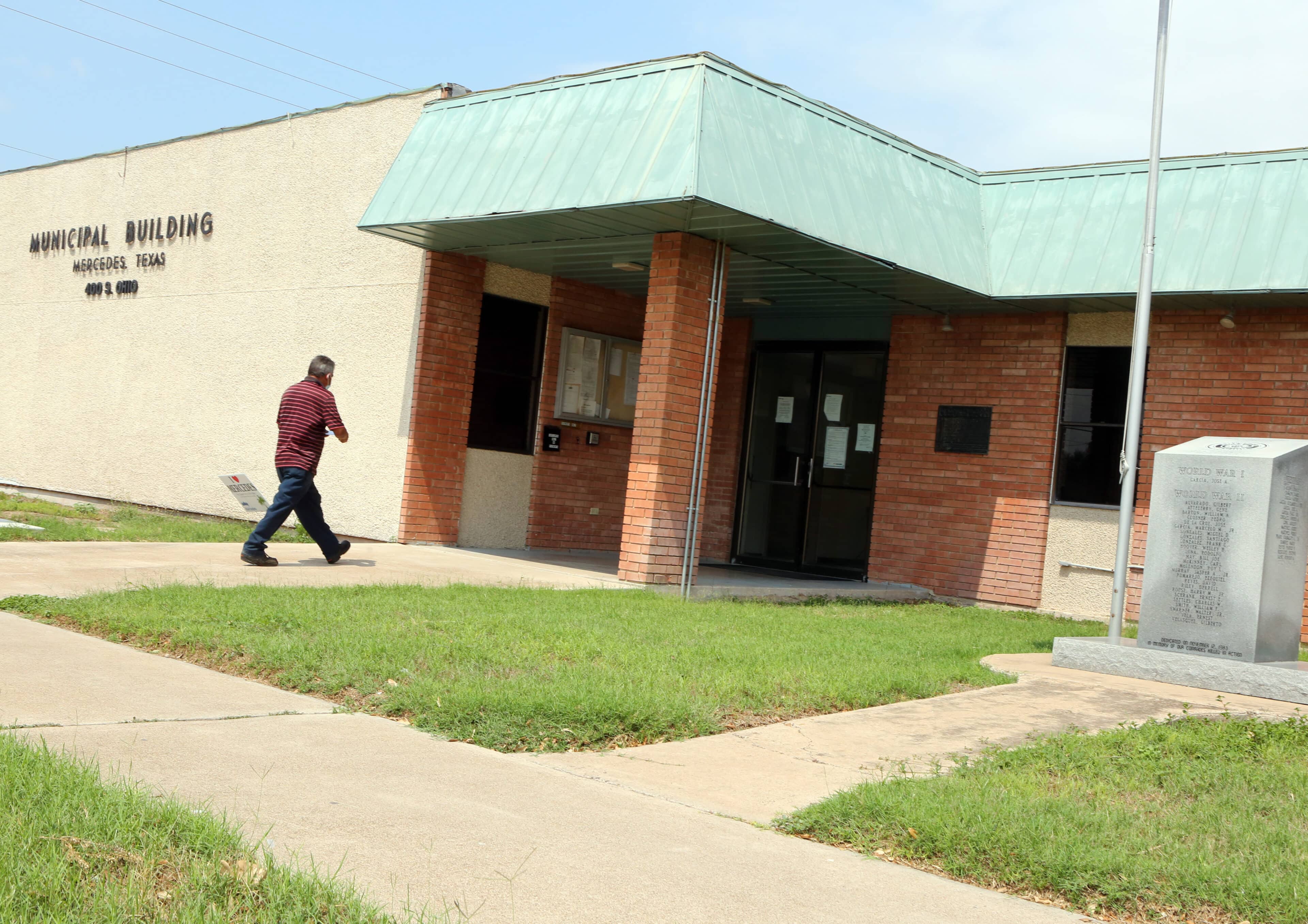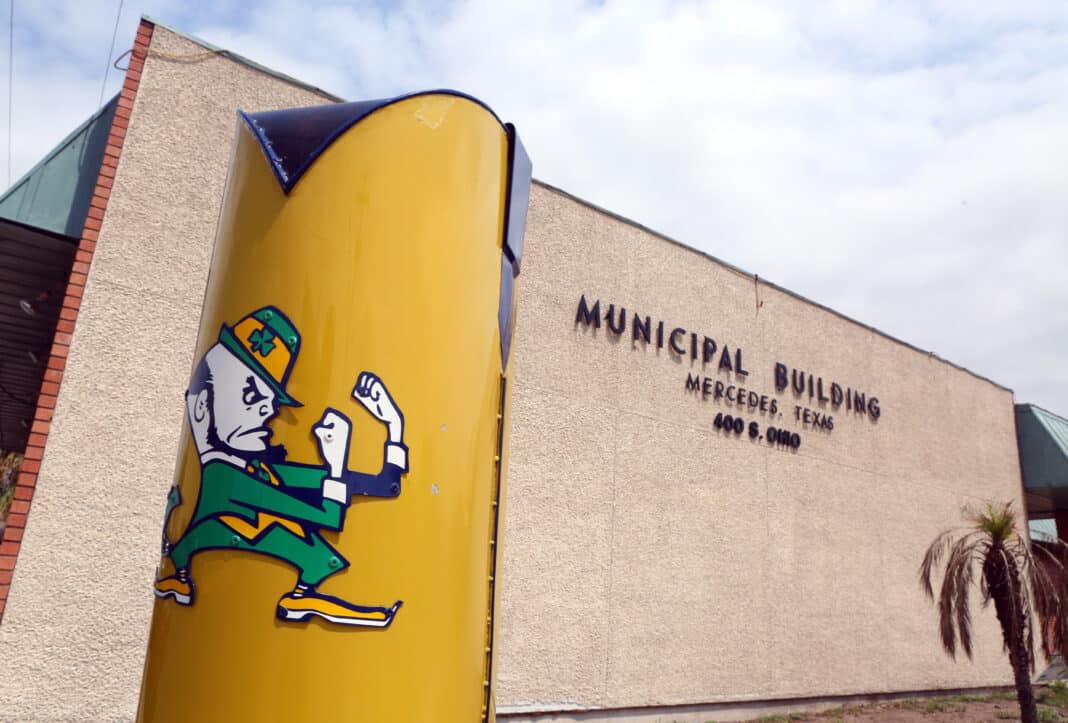Why should Mercedes be the one responsible to handle and process all of that waste?
EDINBURG — A monthslong standoff between a solid waste disposal company and the city of Mercedes may soon come to an end after concerted efforts to mediate the dispute.
That was the message Chris Franz, the attorney representing Valley Dewatering Services, expressed in court on Friday, three weeks after state District Judge Fernando Mancias denied the company’s request for an injunction against the city.
“We’ve made some progress. We’re gonna resume mediation on Tuesday,” Franz said during Friday’s brief hearing.
“My client is still shut down and is still incurring a lot of overhead … but we’re optimistic we can maybe bring this to the finish line,” he said.
Operations at the grease trap and septic waste disposal company have remained at a standstill since mid-January, when Mercedes city officials — accompanied by half a dozen police officers — made a show of force at the facility and compelled it to shut down.
Mercedes alleges that Valley Dewatering has been dumping excessive amounts of contaminants down its sewer line, which threatened to overload the city’s wastewater treatment plant’s capacity to treat the effluent.
But the company claims Mercedes forced the shutdown nearly out of the blue, then refused to respond to Valley Dewatering’s efforts to work toward a solution.
The company further alleges city officials not only intimidated its employees but waste haulers, too. That includes at least one instance when police stopped a truck en route to the facility and told the driver he could not deliver his payload.
Valley Dewatering filed suit against Mercedes on Jan. 20 — one day after the company claims the city severed the company’s sewer line connection.
Two weeks later, however, Mancias denied the company’s request for an injunction that would have prohibited Mercedes from interfering with its operations.

With its sewer line plugged, Valley Dewatering has effectively been prevented from processing some 20 truckloads of grease trap and septic waste each day, equal to about 115,000 gallons of waste per week, according to company President Justin Atkinson.
Really, I’m worried it’s being dumped in pastures.
Atkinson testified during the Feb. 3 injunction hearing that few options exist in the Rio Grande Valley to process the grease trap waste generated in the industrial kitchens found at restaurants, hospitals and schools throughout the region.
One of those few options, a company located in La Gloria, has a much smaller capacity and often turns to Valley Dewatering for its overflow, while the other, located in Weslaco, Atkinson referred to as a “private” company that deals with a sole client.
“Really, I’m worried it’s being dumped in pastures,” Atkinson testified of his concerns that the work stoppage will lead to illegal dumping.
Speaking after Friday’s hearing, Franz indicated that that may already be happening.
“There’s just not enough places to process this waste and it’s our understanding that TCEQ — since we’ve been shut down — has gotten several complaints of illegal dumping,” the attorney said.
But for Mercedes officials, Valley Dewatering has operated with impunity — and in violation of a decades-old industrial waste ordinance — since it opened up shop in 2007.
“We have a company that’s been in existence for over 16 years and taking advantage of the city and the Mercedes residents have been paying for this,” Mercedes City Manager Alberto Perez said last month.
That allegation came as news to Atkinson, who testified he had never heard a single complaint from city officials until after a meeting last spring.
We have identified that they are responsible for about 40% of the sludge that comes out of the (city’s) sewer plant
By January of this year, Mercedes had sent Valley Dewatering a letter demanding it cease operations.
Mercedes officials testified that the city had identified Valley Dewatering as allegedly the largest single source of pollutants in the municipal wastewater treatment system.
“We have identified that they are responsible for about 40% of the sludge that comes out of the (city’s) sewer plant,” Perez said.
The city has also borne the higher costs for the chemicals and electricity needed to process the discharge, all while Valley Dewatering has been charged as an average commercial utility customer, rather than an industrial one, the city manager testified.
As part of its grievance against the company, Mercedes wants Valley Dewatering to pay $512,000 in fines for servicing the higher volume of waste. The city is also claiming more than $750,000 in damages in a countersuit it filed Feb. 1.
“Why should Mercedes be the one responsible to handle and process all of that waste?” Perez said.
The city manager referred to the situation as being “held hostage” for processing all of the Valley’s waste when Valley Dewatering has other options, including trucking waste to a sister plant in Corpus Christi.
Why should Mercedes be the one responsible to handle and process all of that waste?
But for Atkinson, that idea is a nonstarter. He called it financially infeasible.
And without being able to continue processing waste in Mercedes, he fears his company will be forced out of business before a resolution can be reached in court.
“Over the next 90 days, your company will go out of business?” attorney Franz asked Atkinson during the February hearing.
“Yes, for sure,” Atkinson replied.
If Tuesday’s mediation talks fail, trial is tentatively set for April 24.





